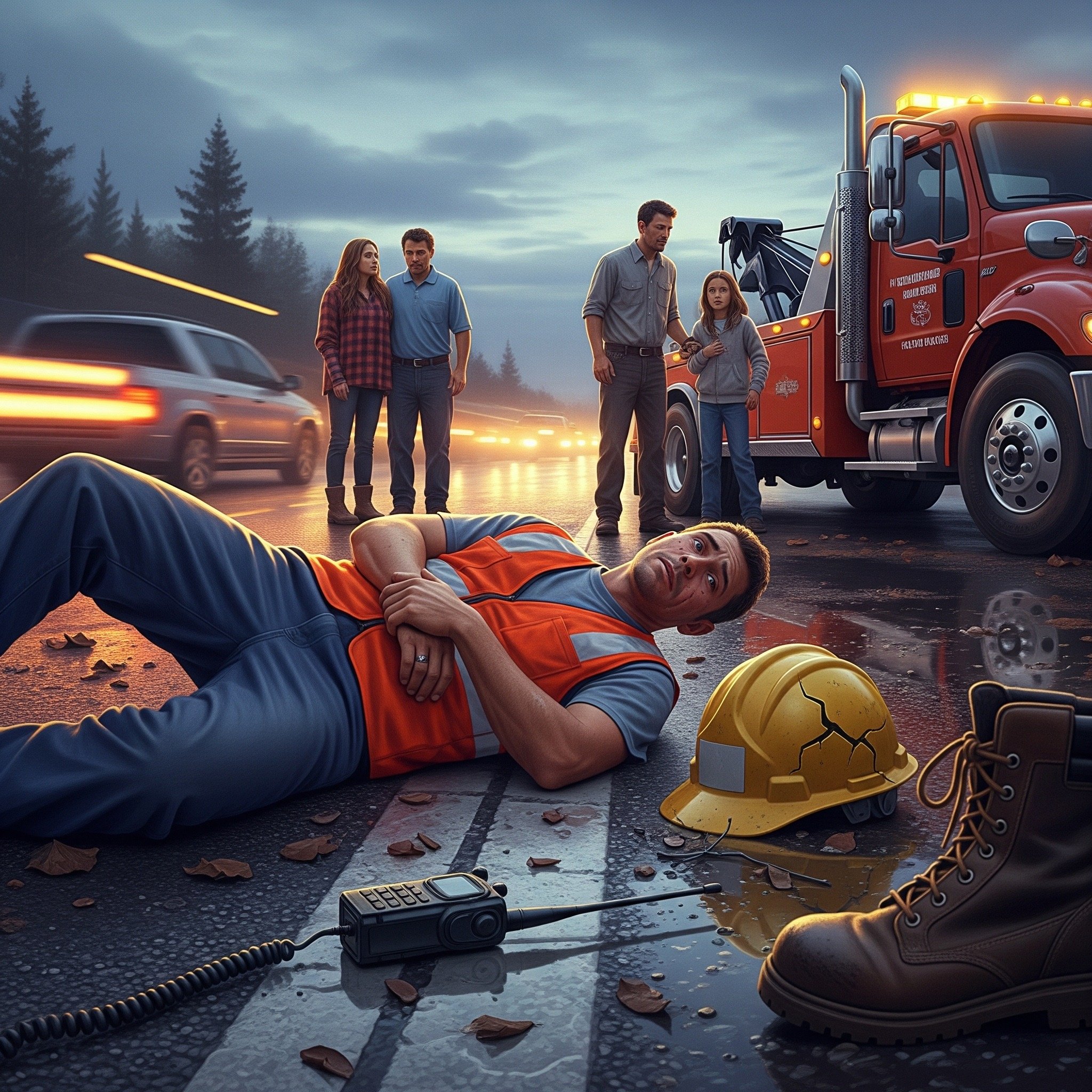Highway Hero’s
The roadside can be a dangerous place. For people who work there, like tow truck drivers, flaggers, and construction crews, it's their office. And unfortunately, that office can be deadly. In British Columbia, where we live, many people have been hurt or even killed just doing their jobs on the side of the road.
Imagine a tow truck driver trying to help someone whose car broke down. They're focused on getting the car hooked up, maybe thinking about the family waiting inside their warm vehicle. Meanwhile, cars are whizzing by, sometimes going very fast. It only takes a moment of a driver not paying attention, or going too quickly, for a terrible accident to happen.
From 2015 to 2024, nine roadside workers in BC never made it home to their families because they were hit by a vehicle. That's nine lives cut short. And it's not just deaths; 267 workers were injured so badly they couldn't work. Think about that for a moment – that's a lot of people who had to miss work, sometimes for a long time, because of an accident.
These accidents don't just hurt the worker. They hurt their families too. Imagine a child whose parent used to tuck them in at night, but now can't because of a serious injury. Or a family that suddenly loses the income of a loved one. The pain and sadness are immense. Beyond the family, the whole community feels it. These are our neighbors, friends, and local heroes. When one of them is hurt, it affects us all.
And there's a big financial cost too. Over the last 10 years, these roadside incidents have cost over $16 million in insurance claims. This money comes from our insurance system, which helps people who are hurt at work. When there are more accidents, these costs go up for everyone. It's not just about paying for medical bills and lost wages; it's also about the disruption to businesses and the extra training and safety measures that are needed.
So, what makes these jobs so dangerous? The biggest problem is vehicles hitting workers. Drivers might be speeding, looking at their phones instead of the road, or simply not slowing down or moving over when they see flashing lights or orange cones. Bad weather like rain, snow, or fog makes it even harder to see. And imagine working at night on a dark rural road – it's incredibly risky because there are often no streetlights to help drivers see what's happening.
WorkSafeBC, which is like the safety police for workplaces in BC, tries very hard to make things safer. They have rules for how traffic control should be set up to protect workers. They also run a campaign called "Cone Zone" to remind drivers to slow down and pay attention when they see those orange cones. There's even a law that says if you see a vehicle with flashing lights on the side of the road, you must slow down and, if it's safe, move over to the next lane. This law is super important for protecting people like tow truck drivers.
Towing companies and other employers also have a big responsibility. They need to make sure their workers know the dangers, have the right safety gear, and follow safe rules for setting up traffic control. And workers themselves need to be careful, wear bright clothing so they can be seen, and report anything that seems unsafe.
While these dangers are everywhere, they can be even worse in rural areas. On country roads, cars often drive much faster. Even though there might be fewer cars, drivers might be less used to seeing work zones, so they're less likely to be on high alert. If an accident happens far from a town, it takes longer for emergency help to arrive. And as mentioned, rural roads are often dark at night, making it even harder to see workers.
The bottom line is that roadside work is incredibly important for all of us. When our cars break down, or when roads need fixing, we rely on these brave workers. We can all do our part to keep them safe. Slow down, pay attention, and always move over when you see flashing lights. Respect the Cone Zone – it's someone's workplace, and their safety depends on you.

